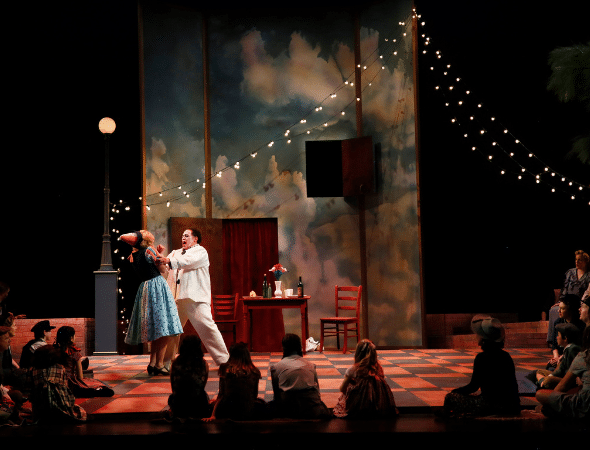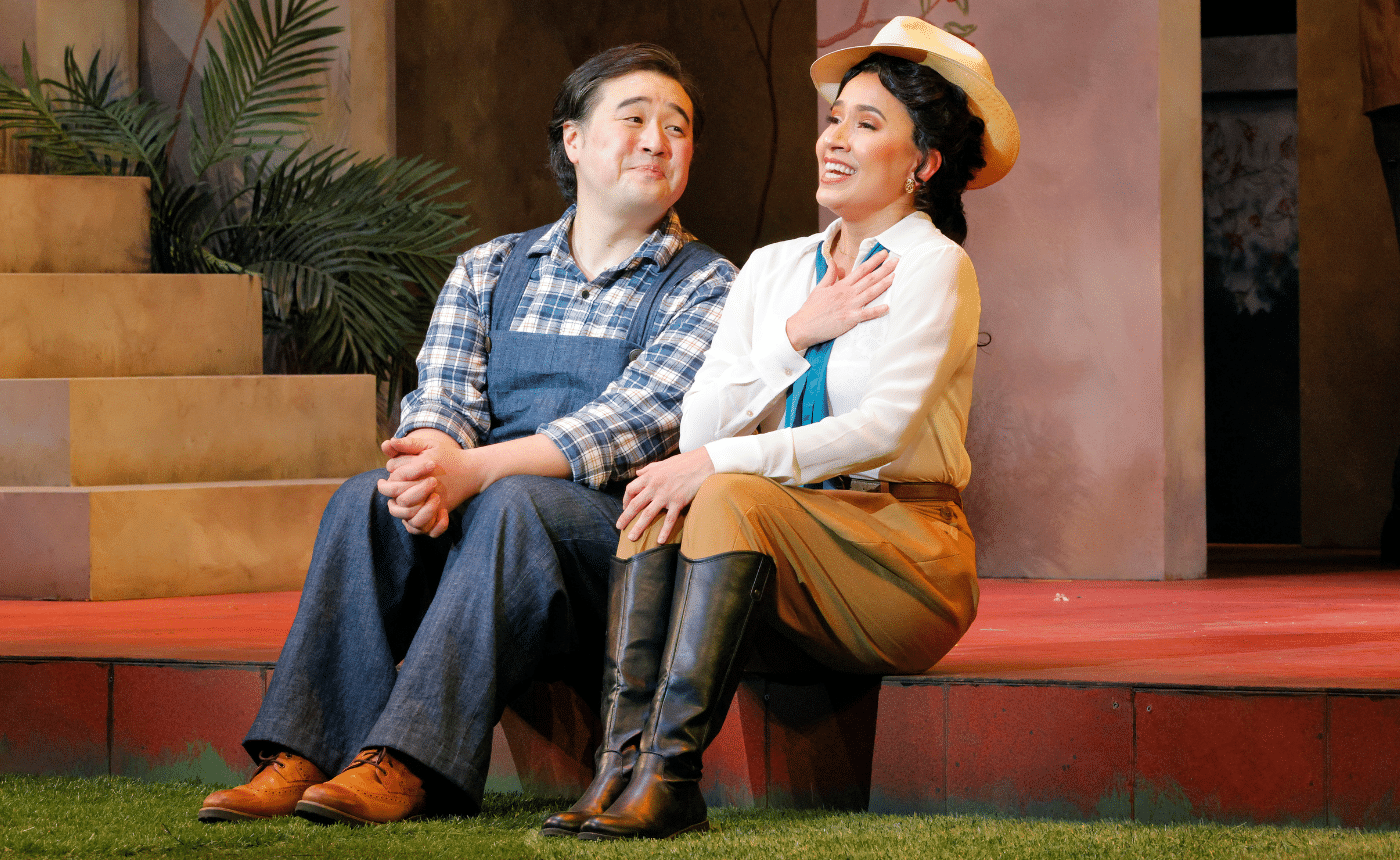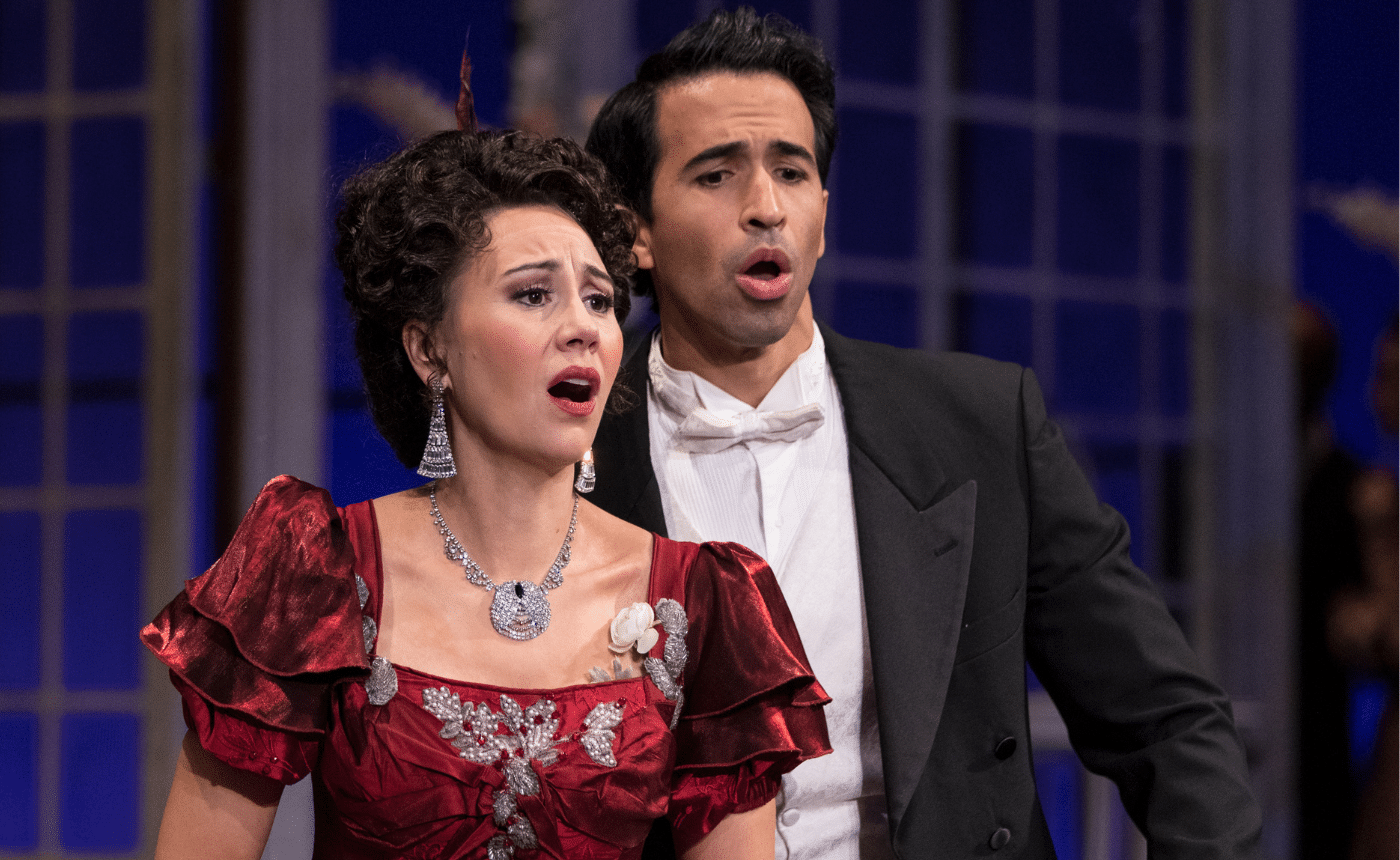PagliacciStory of the Opera
PROLOGUE
In rural southern Italy, an itinerant troupe of comic actors has arrived in town. Tonio the clown makes a “curtain speech” to us, the audience, explaining that what we are about to see is a true story, and that actors have the same joys and sorrows as the rest of us.
ACT I
Canio, a clown who heads the troupe, touts the night’s performance to the gathered crowd. The late starting time—“ventitre ore” (11pm) suggests it’s adult fare. One of the villagers suggests that Tonio is secretly courting Canio’s attractive young wife, Nedda. Canio warns them all that he will not tolerate any flirting offstage—life and theater are not the same.
As the crowd disperses, Nedda is left alone. She feels confined by the troupe’s way of life and is disturbed by her husband’s possessiveness and jealousy. She looks up to the sky, envying the birds their freedom. Tonio appears and tries to force himself on her, but she feds him off. He swears revenge.
The vivacious, frustrated Nedda does, in fact have a lover: Silvio, a young peasant, who suddenly appears. The two reaffirm their love and Silvio persuades Nedda to run away with him that night. Tonio, who has returned and overheard their conversation, hurries to alert Canio, but Silvio manages to slip away unrecognized. Canio violently demands the name of Nedda’s lover, but she refuses to reveal it. Beppe, another of the troupe’s clowns, restrains Canio, and Tonio advises him to wait until the evening’s performance to catch the culprit. Alone, Canio voices to his despair in the opera’s most famous aria, “Vesti la giubba”—he must play the clown even though his heart is breaking.

ACT II
That evening, with Silvio in the audience, Beppe plays Harlequin, who serenades Columbine, played by Nedda. He dismisses her buffoonish servant Taddeo, played by Tonio, and over dinner the two lovers plot to poison Columbine’s husband Pagliaccio, played by Canio. When Pagliaccio unexpectedly appears, Harlequin slips away. Taddeo slyly assures Pagliaccio of his wife’s innocence, which ignites Canio’s jealousy. Forgetting his role and the play, he demands that Nedda reveal her lover. As she struggles to continue her role as Columbine, the audience is enthralled by the drama’s realism; with the tension mounting, Canio snaps, stabbing Nedda and then Silvio, who has rushed to her aid. Turning to the horrified crowd, Canio speaks one of the most famous lines in all opera: la commedia è finita. The comedy is finished.




